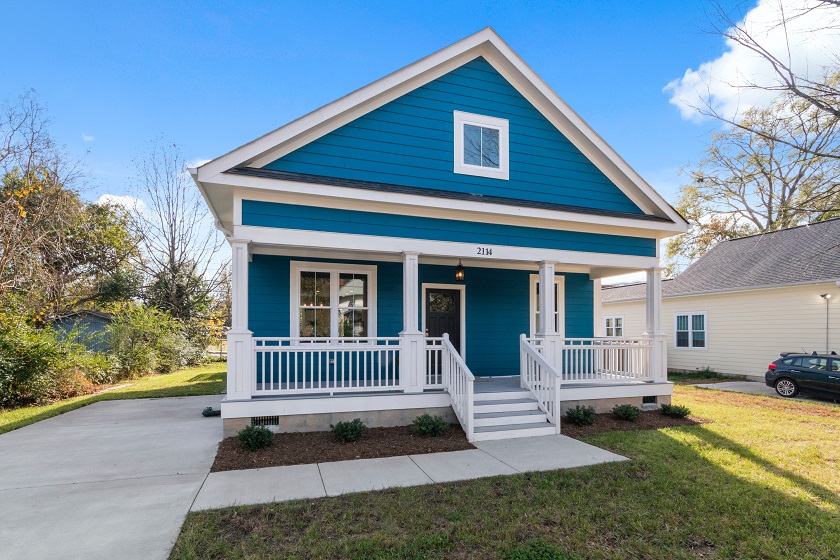
For many retirees, their home represents a significant portion of their wealth. However, accessing that wealth to support their retirement lifestyle can be a challenge. This is where reverse mortgages come into play, offering a unique financial solution that allows homeowners aged 62 and older to tap into their home equity without selling or moving out of their homes. In this article, we will explore the concept of reverse mortgages and discuss how they can unlock the potential of home equity.
What is a Reverse Mortgage?
A reverse mortgage is a loan that enables homeowners to convert a portion of their home equity into tax-free cash, without the need to make monthly mortgage payments. Instead, the loan is repaid when the homeowner sells the home, moves out, or passes away. The loan amount is typically determined based on factors such as the homeowner’s age, home value, and current interest rates.
Benefits of Reverse Mortgages:
- Access to Home Equity: One of the primary benefits of a reverse mortgage is the ability to access a portion of your home equity. This can provide a source of funds to supplement retirement income, cover medical expenses, make home improvements, or simply enhance your quality of life. The funds can be received in various forms, including a lump sum, monthly installments, or a line of credit.
- No Monthly Mortgage Payments: Unlike traditional mortgages, reverse mortgages do not require monthly mortgage payments. This feature can provide financial relief for retirees who may be on a fixed income. The loan is repaid only when the homeowner is no longer living in the home, relieving the burden of monthly payments and allowing homeowners to enjoy their retirement years without the stress of mortgage obligations.
- Flexibility and Control: Reverse mortgages offer flexibility in how the loan proceeds are used. Homeowners have the freedom to spend the funds as they wish, whether it’s to cover daily living expenses, pay off existing debts, travel, or support family members. The control and decision-making power remain in the hands of the homeowner, providing them with the financial independence to meet their unique needs and goals.
- Protection from Falling Home Values: One of the unique features of reverse mortgages is that they are “non-recourse” loans. This means that the homeowner or their heirs are not personally liable for repayment beyond the value of the home. If the loan balance exceeds the home value at the time of repayment, the Federal Housing Administration (FHA) insurance associated with most reverse mortgages will cover the difference. This protection helps mitigate the risk of falling home values and ensures that neither the homeowner nor their heirs will be burdened with a significant debt.
Considerations and Eligibility:
While reverse mortgages offer numerous benefits, it’s essential to carefully consider the potential drawbacks and eligibility requirements.
- Loan Costs: Reverse mortgages come with upfront costs and fees, including origination fees, closing costs, and mortgage insurance premiums. These costs can be financed into the loan but should be factored into the overall financial analysis. It’s important to understand the total cost of the loan and how it will impact your home equity and estate.
- Homeownership and Responsibilities: With a reverse mortgage, you remain the owner of your home, which means you are still responsible for property taxes, homeowners insurance, and maintaining the property. Failing to meet these obligations could result in defaulting on the loan.
- Eligibility Requirements: To qualify for a reverse mortgage, you must be at least 62 years old, own a home that serves as your primary residence, and have sufficient equity in the property. The amount of equity you can access depends on factors such as your age, the home’s value, and current interest rates.
- Impact on Heirs and Estate: While reverse mortgages can provide financial flexibility for retirees, it’s important to consider the implications for your heirs and estate. When the homeowner passes away or sells the home, the loan balance, including accrued interest and fees, must be repaid. If the heirs wish to keep the home, they will need to repay the loan or refinance it using their own funds.
Conclusion:
Reverse mortgages offer retirees a valuable financial tool to unlock the potential of their home equity. By providing access to tax-free funds, eliminating monthly mortgage payments, and offering flexibility in how the funds are used, reverse mortgages can help retirees enjoy a more comfortable and secure retirement. However, it’s crucial to thoroughly understand the terms, costs, and implications of a reverse mortgage and consider the impact on your estate and heirs. Consulting with a reputable reverse mortgage lender and financial advisor can provide you with the necessary guidance to make an informed decision about utilizing this financial option to enhance your retirement years.